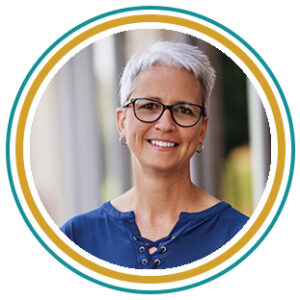Throughout the Bible, we see God use multiple methods to call leaders. For Moses, it was a burning bush. For Samuel, it was a voice in the night. For Esther, it was the wisdom of a family member. For Saul-turned-Paul, it was the confirmation of other apostles.
God also uses a variety of means today, including both supernatural and natural means.ii For missionary and author Elizabeth Elliot, supernatural methods can include visible or audible signs, angels, dreams and visions, and prophets.iii While these means are less familiar to many of us today, God can and still does use them, and we must be open to the possibility of this type of communication regarding our calling. Contemporary leaders have heard God through dreams, audible voices, and visible signs.
More common, however, are what Elliot referred to as natural means. These include duty, God’s Word, prayer, human agents, gifts, experiences, desires and passions, and circumstances.iv God can use any of these eight natural means individually, or in combination with one another or with supernatural means. As we examine each of these methods, reflect on their role in your own life and calling journey. How might God be speaking to you right now?
Duty.
The most obvious natural means of calling—and indeed, our first step in following our specific calling—are our existing responsibilities. “‘Do the next thing’ is one of the best pieces of advice I have ever had,” Elisabeth Elliot writes. “It works in any kind of situation, and is especially helpful when we don’t know what to do. What if we don’t even know what the ‘next thing’ is? We can find something. Some duty lies on our doorstep. The rule is Do It. The doing of that thing may open our eyes to the next.”[i] As we faithfully fulfill our duties, we can seek God’s further direction regarding a specific calling. These responsibilities might include marriage, parenting, aging parents, church or community commitments, or even household duties such as repairs, gardening, or meal preparation.
Human Agents.
God often uses human agents in our calling process, including parents, siblings, a spouse, children, friends, extended family, and even distant acquaintances. They may serve in a variety of ways: by providing an invitation that helps initiate or confirm a calling; by affirming a sense of calling or giftedness; by asking questions that provide clarity or additional direction; or by cautioning against a particular path.
Historically, the wisdom of one’s faith community has been a critical part of the calling process.[ii] Only in recent church history have Christians taken a more individual approach to the calling-discernment process. “Dialogue stimulates thought and broadens vision,” notes Sanders.[iii] As King Solomon counsels, “Listen to counsel and accept instruction, that you may be wise in your latter days” (Proverbs 19:20, nkjv).
Caroline is a pastor in a denomination with a lengthy confirmation process for prospective ministers. “I find a huge sense of confidence in the process I’ve gone through with ordination, and the affirmation I’ve received from church leadership and from presbytery committees,” she explained. “It’s like, ‘Yeah, I believe I’m called here, and so do a lot of other people.’”
While God can and does use people in the calling process, I must note a few important cautions. First, any human invitation must be checked and confirmed through prayer and Scripture. “Our gifts and destiny do not lie expressly in our parents’ wishes, our boss’s plans, our peer group’s pressures, our generation’s prospects, or our society’s demands,” writes Os Guinness.[iv] In my church, we sometimes joke about people being “voluntold” for a ministry role, but underneath the humor, we firmly acknowledge that calling ultimately comes from God, not another human being.
Second, while it is wise to seek the input of others during the calling process, not all counsel should be accorded equal weight. Always seek guidance from mature believers who truly want God’s best for you and who are as interested in listening as they are in talking. Make sure your friends are true friends who will ask hard questions, not just fans or followers who will say what you want to hear. Be wary of well-meaning family members who may be driven more by their own fears or interests. Don’t be like the Old Testament king Ahab, who consulted only the prophets (four hundred of them!) he was sure would approve his desired course (1 Kings 22:1-40).

Gifts.
The Holy Spirit endows each believer with spiritual gifts for building up the body of Christ (Romans 12:6-8; 1 Corinthians 12:4-11; Ephesians 4:11-16; 1 Peter 4:10). These might include teaching, leadership, prophecy, helping, or administration, among many others; the lists in the Bible are not necessarily exhaustive, and there may be as many unique gifts as there are believers.
God often calls people to roles that fit their gifts. Gifting is not an automatic indication of calling, however. As Carmille Akande writes, “Just because we have these gifts doesn’t mean God is calling us to use them at every opportunity. We still must ask ourselves, ‘Is this the will of God for my life?’”[v]
God can call the gifted, but he can also gift those he has called. He can even issue a calling out of our weakness or failure. A contemporary corporate-consulting firm would never have recommended the men Jesus chose as his disciples. The Bible is full of similar examples of God using the least qualified candidates for his Kingdom work—a fact that should give all of us great hope!
Experiences.
Our life experiences can serve to guide and shape our calling. We may experience success at a particular pursuit and, in that success, discover a passion that in turn becomes a calling. We may discover our calling in the process of simply responding to the needs around us. Or we may look back and see a recurring theme in our personal history and realize evidence of a “progressive calling” from God.[vi]
God can also grow our calling from negative experiences, bringing beauty from the ashes of past sin or failure. Jennifer’s story is a powerful illustration of God’s ability to redeem any experience for our calling and his glory:
After living fifteen years as a meth addict, enslaved to men, held captive by the pain of a past that included several abortions, I answered God’s call to know Jesus as my Savior, and he delivered me from my addiction. I became involved with Celebrate Recovery, which was a healing and growing place for me as God started revealing to me my strengths in teaching and counseling.
At an orientation for a faith-based education program for addiction counselors, a professor said, “God uses our past for his purpose.” He shared the great need for Christian counselors who have a recovery background. As he spoke, my heart leapt with excitement and joy, and the hair on my arms stood up. It felt as if God had touched my spirit and confirmed the purpose that I had been created for. Since then, he has opened up countless opportunities to facilitate his healing in the lives of numerous women of all ages and backgrounds.
Remember, God never wastes anything. Even if our experiences do not directly translate to our calling, they become part of our story and shape who we are, which in turn shapes how we live out our calling.

Desires and Passions.
When properly checked, our personal desires and passions—the things we emotionally value—can be a legitimate indicator of calling. Our feelings are a central part of our humanity and reflect the image of God. The Bible tells us that Jesus wept over the death of his friend Lazarus (John 11:1-44) and over the city of Jerusalem (Luke 19:28-41). Similarly, God can place a burden on our heart for a particular people group or type of ministry. I have a heart for ministry leaders. My friend Hayley has a passion for underprivileged minorities. Other friends minister out of a burden for orphans, women, business executives, Native Americans, the homeless, and the unevangelized in Africa.
Ben Campbell Johnson argues that our emotions are a critical component of our calling: “Until the call becomes part of us emotionally, it is nothing more than a notion in our heads that we can manipulate and control. Attaching feelings to our images incarnates the call in our flesh-and-blood story, and passion begins to drive it.”[vii]
At the same time, our feelings can be fickle. God has created us as emotional beings, yet our emotions may reflect flawed understanding. They are a gauge, not a guide.[viii] What, then, should be the proper place for our emotions, passions, or desires in the calling process?
Each of us has a particular bent for or against emotion. As women, the likelihood is that many of us (although certainly not all, myself included) skew toward the emotional side. I suggest that as we seek to discern our calling, we make room for whichever side falls opposite of our default approach. God can certainly use our passions to guide us, but those passions must be tempered by objective truth. At the same time, God can guide through our thoughts, but our minds must remain open to emotion and the possibility of mystery in the calling journey.
In addition, the more closely and regularly we walk with God, the more our desires will align with his desires. Our hearts will instruct our minds, and our minds will instruct our hearts (Psalm 16:7, Colossians 3:1-2). We will not need to fear—or hide in—either emotion or reason.
Circumstances.
Circumstances are literally those things that happen around us.[ix] They are the easiest of all the natural means to detect and are therefore a commonly used measure of God’s direction. Certainly, there are times when God uses circumstances or seemingly random occurrences to initiate, direct, or confirm our calling. An open door or closed door. A passage from a book. A sermon from the pulpit or on the radio. A timely worship song.
We can all point to instances where circumstances helped confirm direction from God. We even see an example of this in the Bible, when Gideon famously tested God by putting out a fleece and asking him to perform miracles to prove his presence (Judges 6:33-40).
We must be very careful about assigning meaning to an event, however. Ease of observation does not guarantee accuracy of interpretation. We could be looking only for what we want to see. An open door could be a sign of God’s favor, or it could be a spiritual test. An obstacle in our path could be a signal to turn around and go in a different direction, or it could be a challenge to overcome.
“In decisions of far-reaching importance, especially, circumstances should play a minor part. Coincidence never negates God’s command,” counsels J. Oswald Sanders.[x] Circumstances must be checked against the truths of Scripture and confirmed by the conviction of the Holy Spirit.

God’s Word.
The Bible serves as a plumb line against which to evaluate any perceived calling by other means. While personal emotions, passions, and desires can be used to discern God’s calling, these must be tested in light of the unchanging truths of God’s Word. And, as J. Oswald Sanders tells us, “Where Scripture speaks clearly, no further guidance need be sought.”[xi]
To know God’s Word, we must spend regular time in it, “reading and studying the whole will of God as found in the whole Word of God.”[xii] God’s Word is “a lamp to [our] feet and a light to [our] path” (Psalm 119:105, nasb); “alive and active” (Hebrews 4:12); illuminated by the Holy Spirit (John 16:12-15, 1 Corinthians 2:6-16); and will never return empty (Isaiah 55:11). When we seek to discern God’s calling, we must spend time in Scripture.
Prayer.
Direction from God requires dialogue with God. Elizabeth Liebert writes that “a life of personal and corporate prayer is the single most important preparation for discernment.”[xiii]
Like any true dialogue, prayer should include not only telling and asking but also listening. Listen for what God may want to say to you, but also listen to yourself. Beth Booram writes:
Pay attention to what you are praying. Not the rote or dispassionate prayers, but the ones that have a quality of unbiddenness. Prayers that overtake you. Prayers that you can’t “not” pray. They form in you . . . from the swirl of desire and desperation merging together, giving voice to your deep yearning. Those prayers can indicate where God is preparing to or has implanted the seed of a dream.[xiv]
As with time in God’s Word, time spent in prayer is absolutely essential—“obvious wisdom”[xv]—to discern our God-given calling. Prayer forces us to slow down, evaluate our hearts, and consider God’s perspective.
“In prayer, as I sit and wait, pressing into his presence, I receive strong impressions in my spirit, like heavenly vibes, that influence me,” explained Jennifer, a minister and alcohol-and-addictions counselor. Janette, a seminary professor and pastor, practices the Prayer of Examen—a prayerful review of her day[xvi]—as a method of regular communication with God. “The Prayer of Examen has been helpful to show me where I was able to give the most love, or the least; where I felt the most grace, the most life-giving moments,” Janette said. “Those kinds of movements over the years have illuminated some of the choices I made.”
Regardless of the form your prayers take, commit to making regular time for conversation with God as a means of discerning, confirming, and directing your calling.
The ways that God calls you will look different from anyone else’s. In fact, they may be different from what you thought it would (or should) look like. God may use a different method than you expected, but you can trust that he knows the right method for you. Every calling ultimately originates from God, and he can use both supernatural and natural means to communicate that call.[xvii]
 You’ve been reading with Angie Ward, author of I Am a Leader: When Women Discover the Joy of Their Calling. Watch the video, get the book, and read free excerpts by visiting iamaleaderbook.com.
You’ve been reading with Angie Ward, author of I Am a Leader: When Women Discover the Joy of Their Calling. Watch the video, get the book, and read free excerpts by visiting iamaleaderbook.com.


